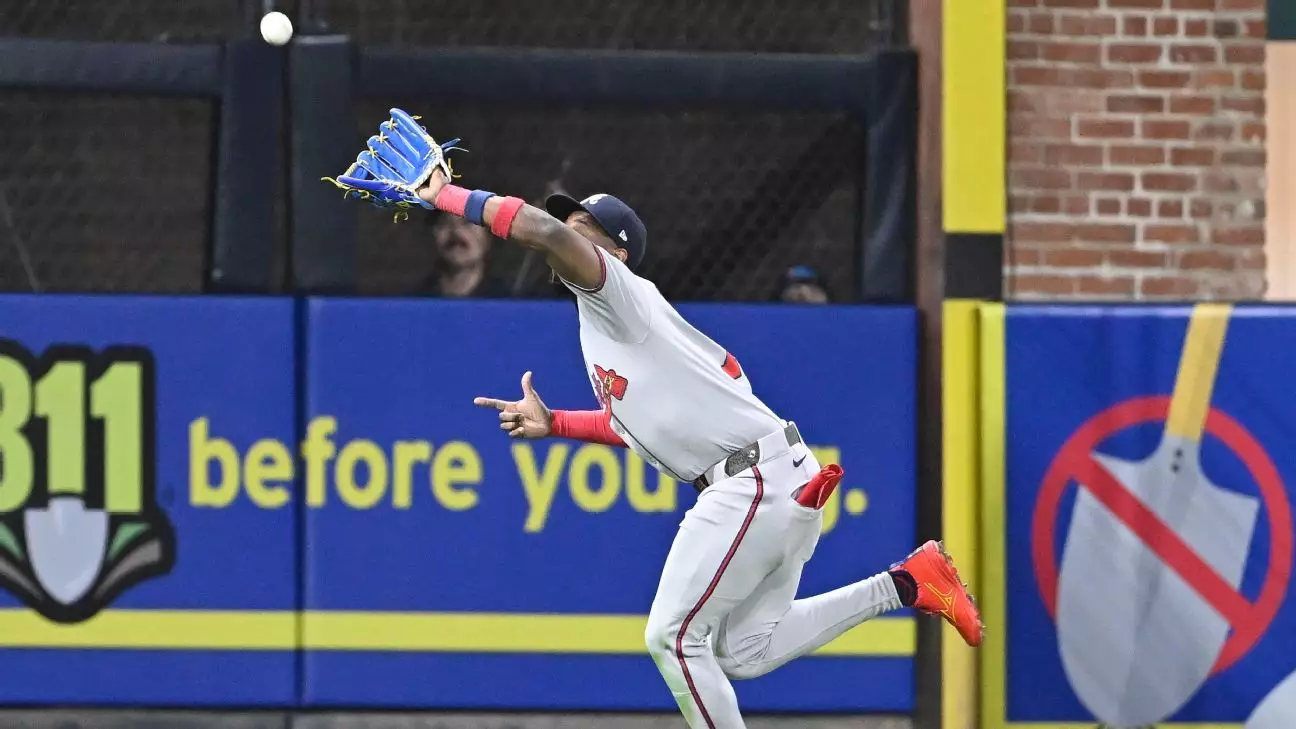The world of professional sports thrives on the principles of competition, integrity, and fair play. When an athlete falters, particularly in a high-profile case such as the suspension of Atlanta Braves outfielder Jurickson Profar, it sends shockwaves through an already volatile landscape. Profar’s positive test for chorionic gonadotropin (hCG), a performance-enhancing hormone, has brought embarrassment not just to him, but to a franchise that was counting on him to be a pivotal component of their 2025 campaign. Given his contract worth $42 million over three years, this immediate suspension feels like a betrayal to both his teammates and the fan base that rallied behind him.
Profar expressed his devastation over what he described as the “most difficult day of my baseball career,” but his words are merely the tip of the iceberg when it comes to the repercussions of this event. As members of the Braves and supporters of the franchise scramble to absorb the impact of losing a key player in the midst of a disappointing start to the season, it raises critical questions about the culture of baseball and its ongoing grappling with performance-enhancing drugs.
The Emotional Toll on a Player’s Psyche
What sets Profar’s story apart from the growing litany of athletes caught in a spiral of substance abuse is his fervent denial of willful wrongdoing. He states he had been tested eight times throughout the previous year without issue. It’s unsettling to consider that amidst the pressures of performance, even the cleanest players might be coerced into an environment ripe for misjudgment. Profar’s emotional turmoil shines a light on a crucial issue: the psychological burden athletes bear.
In declaring his love for the game, Profar captures a significant aspect of what it means to be an athlete—not merely the physical will to perform, but an emotional investment in playing with honor. His heartfelt apology to the Braves organization and their fans suggests a deep understanding of the betrayal felt whenever the sanctity of sport is compromised. The high-stakes atmosphere of Major League Baseball fosters an environment where players may grapple with anxiety and insecurity, pressuring them to push the limits of excellence, sometimes to the point of recklessness.
The Franchise’s Response: Disappointment and Resilience
While the disappointment echoed throughout the Braves organization, their official statement was measured, urging a sense of hope for Profar’s future. This measured tone is reflective of a significant dilemma: how to maintain team morale in the midst of scandal. It is imperative for franchises not only to confirm their commitment to the Joint Prevention and Treatment Program but also to prepare for a future that no longer includes players who falter under scrutiny.
The operational strategic pivot must be instantaneous. Given the backdrop of Profar’s suspension and the absence of another standout outfielder, Ronald Acuña Jr., the Braves face a daunting challenge as they slip into the critical early months of their season. The bandwagoning of quick fixes through player acquisitions, such as the recent addition of Stuart Fairchild, is an indication of their resolve to rebound from adversity. However, this immediate reshuffling of talent raises further questions about the decision-making processes within the organization about managing talent and risk.
The Bigger Picture: Performance Enhancement and Ethical Sportsmanship
It’s tempting to chalk up Profar’s misfortune as an isolated incident, but the reality is much grimmer. The rift between sportsmanship and the temptation to bypass natural talent in lieu of performance enhancement lives on in the shadows of professional athletics. The legal and ethical ramifications offer a Sisyphean challenge, as players struggle to find a balance between their aspirations and the fear of failure.
The conversation does not end with Profar’s suspension. It beckons a larger societal inquiry into the very nature of competition and the ethics of success. Every athlete should face the grave consequences of discovered deceit—however, it must also encourage a more compassionate understanding of the psychological dimensions that drive these decisions. Without reforming the critical support structures that both highlight integrity and address the latent fears that fuel PED usage, the cycle of scandal is unlikely to break.
In celebrating the genuine passion of athletes like Profar, we must not overlook the responsibility that comes with it—a responsibility that extends beyond the diamond and into the heart of human psyche, demanding both fairness in competition and support for those faced with impossible expectations.

